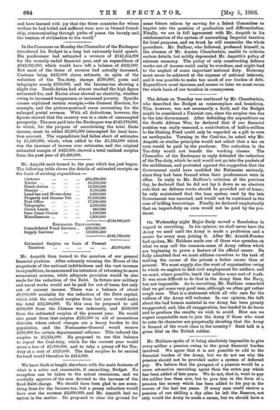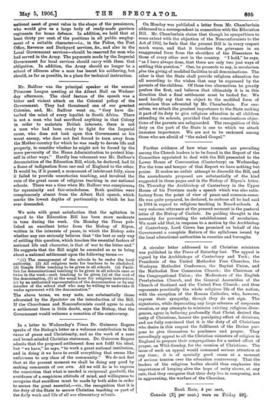Mr. Haldane spoke of it being absolutely impossible to give
every soldier a pension owing to the great financial burden involved. We agree that it is not possible to add to the financial burden of the Army, but we do not see why the pension should not be provided under a system of deferred pay. We believe that the prospect of a pension would be a more attractive recruiting agent than the extra pay which has been added of late years. We do not, that is, want to pay the soldier less than now, but to give him in the form of a pension the money which has been added to his pay in the course of the last ten years. If every man could receive a pension of one shilling a day after he left the Reserve, not only would the Army be made a career, but we should have a
national as- set of great value in the shape of the pensioners, who would give us a large body of ready-made garrison regiments for home defence. In addition, we hold that at least thirty per cent. of the positions in all public employ- ment of a suitable character--i.e., in the Police, the Post Office, Revenue and Dockyard services, &c., and also in the Local Government services—should be reserved for men who had served in the Army. The payments made by the Imperial Government for local services should carry with them that obligation. In addition, the Army should no longer be a school of idleness after a man has learnt his soldiering, but should, as far as possible, be a place for technical instruction.









































 Previous page
Previous page